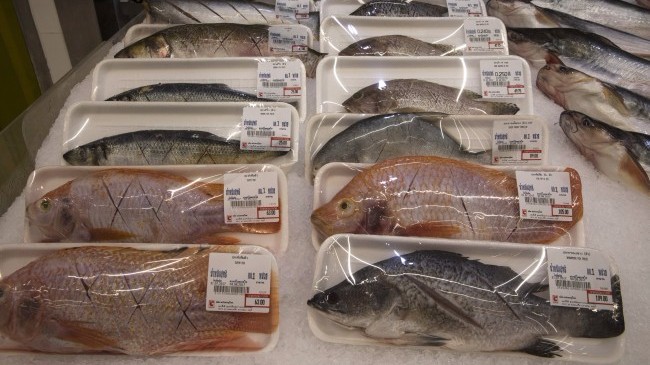
North Korea is notorious for taking a large portion of the wages its workers earn abroad in order to fund military projects. For example, according to a new report by the Associated Press, American consumers may be purchasing seafood at grocery stores and in restaurants that was prepared by North Korean workers based in China.
Per the AP’s report, some brands of salmon found in Walmart and ALDI stores was linked to North Korean workers based in China. If true, this would mean American customers have inadvertently subsidized North Korea’s nuclear weapons program. The jobs, which are highly sought after by North Korean citizens, can generate an estimated $200 to $500 million a year for the regime. And now that it is facing more stricter sanctions, practices like these are expected to grow.
It is a federal crime to import North Korean products into the United States no matter where they are made, according to a new law signed by President Trump over the summer. Yet the AP realized the seafood had gone through Canada, Germany and the European Union first, though it was only able to track specific shipments of seafood linked to North Korean workers. These same laborers also work in factories that make wood flooring and clothes in Hunchun, a Chinese city near the North Korean and Russian borders.
Both industries export heavily to the U.S, and around 3,000 North Koreans are believed to be in Hunchun alone:
Every Western company involved that responded to AP’s requests for comment said forced labor and potential support for North Korea’s weapons program were unacceptable in their supply chains. Many said they were going to investigate, and some said they had already cut off ties with suppliers.
North Korean laborers work in several industries around the world, including construction in Gulf states and shipbuilding in Poland. Recent UN sanctions have banned countries from issuing new work permits to North Korea, though they still allow workers already employed to continue working under existing permits.
(Via Associated Press)
